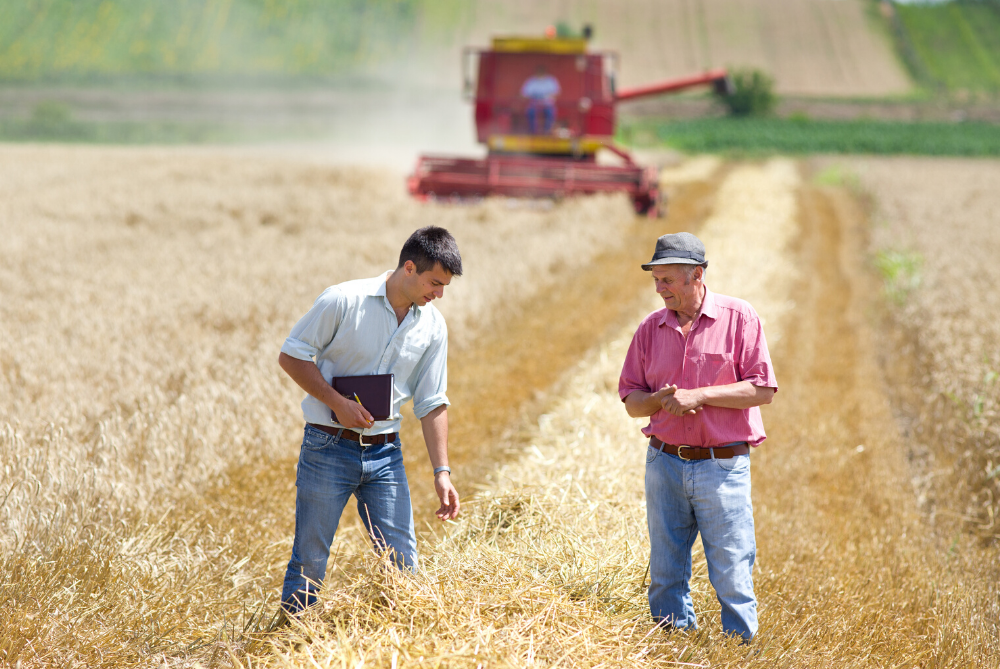
The number of reasons to consider investing in real estate – more specifically farmland – continues to grow (pun intended) every year. With urban expansion expected to reduce the world’s arable farmland by nearly 75 million acres over the next decade, existing farmers will be forced to boost production rates to accommodate an ever-increasing demand. Needless to say, the value of remaining arable acreage will only increase. Considering the fact that food from farms will remain essential to the world’s increasing population, long-term profit potential for farmland investments seems plausible, if not obvious.
However, choosing the right farmland investment requires an understanding of not only the agriculture markets and in-demand crops, but the management and administrative components necessary to run an efficient and profitable operation.
Not every farm is a viable candidate for successful crowdfunding. Farms must be well maintained with a history of productive harvests over the course of many years. Healthy soil tilth through regular crop rotations and the addition of organic matter is essential for ensuring sustainability of the land for future seasons. Multiple reliable water sources must also be present to protect against drought and fire hazards.
While these basic elements comprise the foundation of a farmland crowdfunding opportunity, just because a property meets these criteria does not necessarily mean it would make for a good investment. Other aspects such as a farm’s size, age, location, and crop selection are key components when evaluating its long-term investment return potential.
Perhaps the most important aspect of an investment-worthy farm is its ability to remain in operation. This is more than just being able to grow healthy crops, although that is indeed one of the essential characteristics.
A farm’s economic viability refers to its profitability, and the likelihood that the operation will remain profitable. Using cost-effective planting strategies, accepted modern harvesting techniques, and reliable tools and machinery are all integral components to sustainability. Ideally, the farm should employ modern technology to enhance efficiency and maximize potential through the use of drones and similar automation hardware.
Additionally, the farm must be environmentally friendly, with processes in place that help regenerate and preserve the land and resource base for the future. Protecting the environment, including the air, land, and animal populations in surrounding areas, is a mandatory characteristic of a sustainable farm. This typically excludes operations that employ large-scale industrial production.
Most farms are family-owned and operated. Farmers are typically the children of farmers, with property passing from one generation to the next. It’s rare to find first-generation farmers nowadays, considering the scarcity of available land and the high cost of entry, not to mention the fact that successfully growing and harvesting a rotating cycle of varied crops requires knowledge that, in many cases, only comes from first-hand experience.
Operating a profitable farm takes more than just knowing how to produce a successful harvest, though. It requires an understanding of the agriculture market, competition, and local culture, as farming isn’t merely a means to an end, but rather a way of life in the community. Farmers tend to have close and long-standing relationships in the community, and these relationships help create and maintain the avenues through which produce is exported.
A viable farmland crowdfunding opportunity requires a seasoned veteran running the show, someone with strong ties to the local community and a lifelong love of growing fresh produce.
Investors looking to get into the farming industry and take advantage of the impending food shortage can do so with FarmCek. The company’s crowdfunding opportunities offer investors an alternative to more traditional means of generating profit with farmland. FarmCek was the first agriculture crowdfunding website and has a successful track record of investing in sustainable, profitable farmland.
Through FarmCek’s unique platform, investors can participate in the ever-changing industry and remain confident thanks to an experienced partner and an easy, secure online portal. Every aspect of the farming operation – from planting to harvesting to selling – is managed by FarmCek.
A list of currently available crowdfunding opportunities can be viewed on the company’s website, along with descriptions of the farms, their operations, and expected return potential. With FarmCek, you can participate in the agriculture industry without the need to actually buy your own farm. Start by signing up for a free account and learning more with the Ultimate Guide to Investing in Farmland.